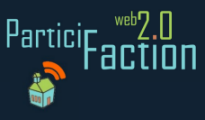

Contrary to the post title, this entry is not about that pair of goofy teachers you had in grade 9. Two valuable tools in the 2.0 world of education today are Del.icio.us and the ever-controversial Facebook. Not sure what one is or how the other might have educational value? Read on:
Del.icio.us:
Ever save your favourite web sites to your web browser's "favourites" or "bookmarks" folder? Sure you have. That's great for when you're on your computer, but what about easy access to your bookmarks when you're on a different one? Get a Del.icio.us account and you have online bookmark access through one site, and can benefit from such "social" features as popularity evaluation, tagging, and sharing. Education applications? -- limited only by your imagination. Example: have students create accounts, and tag and share good sites around any curricular topic; have them blog comments on the sites that others chose...
Facebook:
Get them where they live! Why not create a Facebook site for your class or extracurricular activity (before the students do it anyway)? You'll have administrative control, be the cool, tech-savvy teacher, and tap into the sharing / discussion power of this social networking tool. As well, you can teach kids appropriate use of Facebook for your context, and make them aware of the implications of its use. Does it make sense for Educational institutions to continue to ignore and/or disallow what is arguably the most popular, significant, and powerful communication tool available today?
Your Facebook profile only contains as much information and is as accessible as you want: make a point of understanding the privacy settings, and only upload information with which you are comfortable. Learn to use it, and then you can teach proper use of it well. I have 2 accounts: one for personal use, and one with which I administrate
my Library's Facebook page.
Warning: more than one teachers' federation has recommend against engaging with students in this medium, citing potential legal implications. you make the right call for you; I guess my personal position is clear... ;-)







